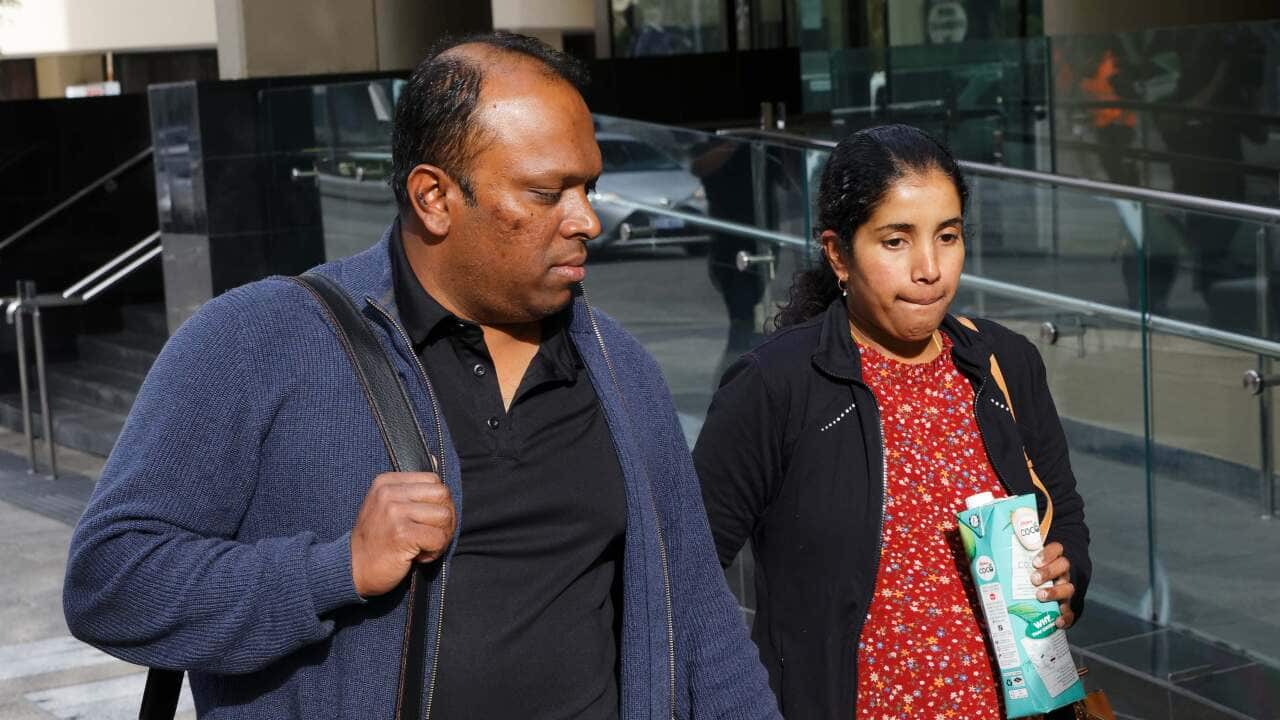Key Points
- Seven-year-old Aishwarya Aswath died of sepsis at a Perth hospital in April 2021
- A junior doctor who briefly saw her on the night she died says he regrets not further investigating her condition.
A junior doctor who briefly saw Aishwarya Aswath on the night she died of sepsis at a Perth hospital says he regrets not further investigating her condition.
Seven-year-old Aishwarya died in April 2021, hours after presenting to the Perth Children's Hospital emergency department with a fever and unusually cold hands.
She had been left in a waiting room for more than 90 minutes, despite her parents pleading with staff to escalate care as her condition deteriorated.
An inquest into her death is examining why their concerns were not acted on earlier.
Aishwarya had been unwell for about 36 hours when brought to the hospital at 5.30pm on Easter Saturday by her father Aswath Chavittupara and mother Prasitha Sasidharan.
Her first interaction with a doctor - junior registrar Tony Teo - came about 10 minutes later. CCTV footage played to the court showed it lasted just 20 seconds.
Dr Teo inspected Aishwarya and identified discolourations on her right iris after a clerk had relayed concerns from Ms Sasidharan about the girl's eyes.
Giving evidence on Thursday, Dr Teo confirmed he did not have access to the triage notes and was not aware Aishwarya had any other symptoms.
He told colleagues Aishwarya would need a further eye assessment but did not make any notes.
A nurse soon after recorded Aishwarya had an elevated heart rate and temperature of 38.8C, above the threshold for considering sepsis protocols.
Dr Teo said the hospital had been short staffed and his focus was to deal with Aishwarya efficiently.
Deputy state coroner Sarah Linton asked whether he might have had a better picture if he had "slowed down a little bit and actually spoken to the parents".
"In hindsight, yes I would have," Dr Teo replied, adding that he regretted not investigating further.
Nurse Jacqueline Taylor had earlier given Aishwarya a triage score of four, the second-least serious category.
Her assessment of Aishwarya was carried out entirely through a screen.
Ms Taylor told the inquest she had been running the triage desk alone with 96 patients presenting during the afternoon shift.
While hands-on assessments were preferable, they were not possible due to time constraints.
Ms Taylor believed Aishwarya, who she recorded as having diarrhoea, vomiting and a headache, likely had gastro.
She said she didn't know the girl had a fever.
Ms Taylor maintained the triage score was appropriate but acknowledged Aishwarya's care could have been escalated earlier with a more thorough assessment.
"The whole department was under pressure, time pressure and exhaustion," she said.
A recent increase in staff, including additional triage support, had still not raised the emergency department to an "ideal standard".
Aishwarya's parents have said h and showed little urgency to address their concerns.
The girl was described as floppy and barely able to lift her head by the time she was finally moved from the waiting room to an assessment bay and then the resuscitation area.
She went into cardiac arrest and was pronounced dead about 9pm, having succumbed to an infection related to group A streptococcus.
The inquest continues on Friday.











